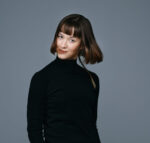ARTICLE: To my eye, it’s reading!

Having written that “[c]apitalism occupies the horizons of the thinkable”[1] Mark Fisher emphasises its constant, naturalised presence in his book. As the creative class – artists, academics, cultural workers – we are beginning to realise the danger of this. After all, we live by our passions, and our work is our passion. Despite our many efforts to live differently, it is still extremely difficult to find time for activities that do not produce measurable results, even if – as in the case of reading books – we value them highly. Nor do we find time for boredom in our daily lives; any form of rest and relaxation is perceived as procrastination, an internal conflict between the limbic system and the prefrontal cortex, and a strong desire to maintain order and moderation. So why does the information that “34% of respondents said to have read at least one book in the past 12 months” make us so uneasy?[2]
The answer is complex. As an invited panellist at the Eye on the World (L’œil du monde) conference at the National Library on 22 March, I spoke about the implications of WOK research. In the age of widespread access to the media and countless channels of information, everyone reads. The scope of the term ‘reading’ is wide. It could be seen as the process that takes place in the nervous system, which consists of assigning specific meanings or sounds to symbols, but also as ‘immersing’ in and navigating through imaginary worlds. Only the semantic field delimited by these two definitions allows us to perceive and problematise all the intermediate states. The ‘reading education’ that we have taken as the subject of our research is understood in a very broad sense. Only the semantic field delimited by these two definitions allows us to perceive and problematise all the intermediate states. ‘Reading education’, the subject of our research, is understood very broadly. During the course of the study, we considered four different definitions that could be applied to the concept: critical reading and the ability to question the text, reading against disinformation, reading as such (e.g. as a pastime), and the creation of communities around shared reading.
Reading in the age of the digital revolution is anathema to literary purists. The practice of ‘experiencing’ other worlds is represented in books, audiobooks, films, TV series, video games, fan fiction and graphic novels, i.e. in diverse cultural texts of all forms and narratives. Reading is a tool for acquiring knowledge and the easiest way to step out of one own’s shoes and feel different.
Adults and representatives of the groups we interviewed as part of our research expressed many different opinions about children’s and young people’s reading. We did not want to put forward our own ideas, but to set this as a homework for education itself, so that it complements the ‘how’ rather than ‘what and how much’ the young generation reads today. We would also like it to answer the question of what is to be gained from talking about our reading with others, and the value of reading communities in combating social atomisation, a serious challenge facing many inhabitants of cities and conurbations today.
[1] M. Fisher, Capitalist Realism. Is There No Alternative?, Zero Books, London, 2012, p. 8.
[2] Stan czytelnictwa w Polsce, 2022 [The State of Readership in Poland, 2022], https://www.bn.org.pl/raporty-bn/stan-czytelnictwa-w-polsce/stan-czytelnictwa-w-polsce-w-2022 [access on 21.04.24].





